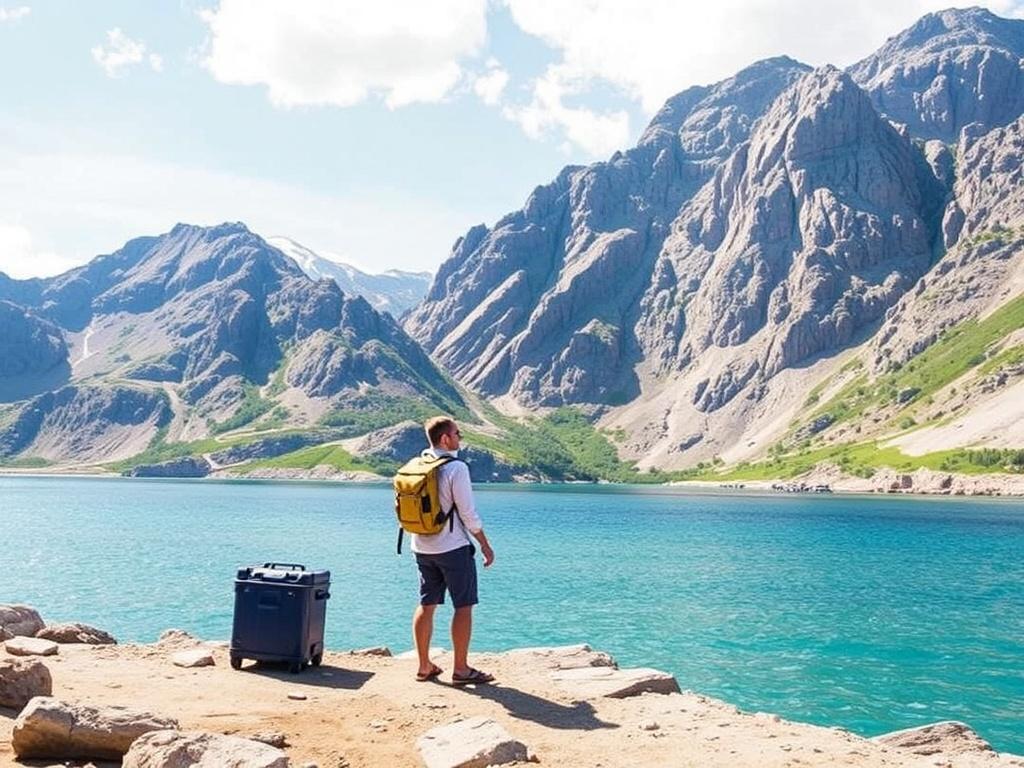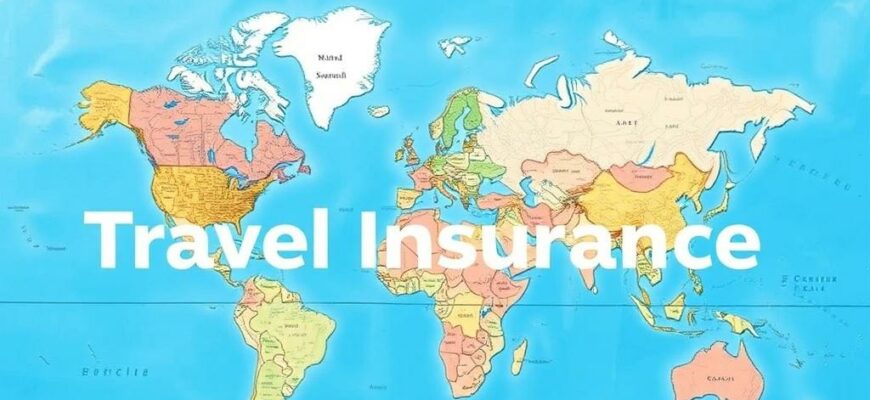Traveling independently is a thrilling and liberating experience. Venturing off the beaten path, crafting your own itinerary, and immersing yourself in new cultures can create memories that last a lifetime. However, with this freedom comes certain risks and uncertainties. That’s where must-have travel insurance for independent globetrotters steps in—providing a safety net that lets you explore the world with confidence and peace of mind.
If you’re planning solo treks, backpacking across multiple countries, or spontaneous getaway trips, understanding what type of travel insurance you need is essential. While it might feel like an unnecessary expense at times, the right coverage can save you from significant headaches and financial loss. In this guide, we’ll break down everything independent travelers need to know about must-have travel insurance, how to choose the best policy, and the key factors that keep you protected on your journey.
Why Independent Globetrotters Need Travel Insurance
Travel insurance is more than just a formality or box to tick before you take off. Independent travelers face unique challenges that make travel insurance a must-have. When you’re alone, responsibility for your safety, health, and belongings rests entirely with you. Without a support system, unexpected situations can become overwhelming quite fast.
Imagine falling ill in a foreign country, losing your passport, or having your flights canceled abruptly. These are common travel hiccups that can disrupt your trip. Having travel insurance ensures you have access to medical support and financial assistance when those real-life “what if” moments happen.
Moreover, as an independent globetrotter, you often visit lesser-known destinations or rely on budget accommodations and transport, which might carry higher risks. Travel insurance can provide coverage tailored to these scenarios, including emergency evacuation or delays in unconventional travel modes.
Here are key reasons why must-have travel insurance is vital:
- Medical emergencies: Overseas healthcare can be costly, and travel insurance covers hospital stays, doctor visits, and sometimes pre-existing conditions.
- Trip cancellation/interruption: Unexpected events may force you to cancel or cut short your trip; insurance helps recoup non-refundable costs.
- Lost or stolen belongings: Independent travelers often carry valuable gear—insurance protects against loss or theft.
- Emergency evacuation: In remote areas, medical evacuation can be the difference between life and death—and financial ruin without insurance.
- Travel delays and missed connections: Coverage can help with extra accommodation or alternative transport expenses.
Types of Travel Insurance Policies to Consider for Independent Travelers
Not all travel insurance policies are created equal. As an independent globetrotter, it’s important to find a policy that fits your unique lifestyle and travel style. Here’s a breakdown of the most important types and what they cover.
1. Comprehensive Travel Insurance
This is the go-to policy for most travelers because it offers broad protection. A comprehensive plan typically includes medical coverage, trip cancellation/interruption, lost luggage, delays, and some emergency assistance services. For globetrotters who want peace of mind for anything that might arise, this is usually the best option.
2. Medical Only Travel Insurance
If you’re on a tight budget or taking a short trip, medical-only insurance can be a good fit. It focuses purely on covering medical emergencies but does not pay for trip cancellation or lost belongings. Remember, medical expenses abroad can be astronomical, so having at least this coverage is recommended.
3. Adventure Sports and Activities Coverage
Independent travelers often seek offbeat experiences such as hiking, scuba diving, or skiing. Many standard insurance policies exclude high-risk activities, so you may need a rider or specific adventure sports coverage. This ensures your activities don’t void your insurance claims.
4. Long-Term or Multi-Trip Insurance
For digital nomads or frequent travelers, multi-trip or long-term plans offer cost-effective coverage for multiple journeys or extended stays. These policies often provide similar benefits as comprehensive insurance but allow for numerous trips within a year or longer periods abroad.
Comparing Policy Features in a Table
| Policy Type | Medical Coverage | Trip Cancellation | Lost Luggage | Adventure Sports | Ideal For |
|---|---|---|---|---|---|
| Comprehensive Travel Insurance | Included | Included | Included | Optional add-on | Most independent travelers |
| Medical Only | Included | Excluded | Excluded | Excluded | Short trips, budget travelers |
| Adventure Sports Rider | Included | Varies | Varies | Included | Adventure seekers |
| Long-Term/Multi-Trip | Included | Included | Included | Optional add-on | Frequent travelers, digital nomads |
How to Choose the Best Must-Have Travel Insurance for Independent Globetrotters

Choosing the right travel insurance can feel overwhelming with so many options available. Here are some steps and tips that’ll help you narrow down to the best coverage for your journey.
Assess Your Travel Plans and Risks
Start by thinking about your destinations, length of trip, planned activities, and health status. Traveling to countries with expensive healthcare? Engaging in adventure sports? Planning multiple stops? These factors directly influence the type of policy and coverage limits you need.
Look Closely at Coverage Limits and Exclusions
Many policies appear similar on the surface but differ substantially in what they cover and how much they pay out. Check the maximum payouts for medical expenses, lost baggage, cancellations, and evacuations. Also, carefully read the fine print about excluded situations such as pandemics, pre-existing conditions, or specific activities.
Check Reviews and Reliability of Providers
Buying insurance from a trustworthy company with solid claim support is essential. You don’t want to spend hours fighting a claim when you truly need help. Look for providers specializing in travel insurance for independent globetrotters or digital nomads as they understand your needs better.
Compare Prices, but Don’t Skimp on Coverage
While affordability is important, the cheapest policy might leave you underinsured. Get several quotes and compare benefits carefully. It’s better to pay a bit more for a policy that protects you fully rather than save money upfront only to face massive costs later.
Understand the Claims Process
Some policies require prompt notification of incidents and proper documentation to approve claims. Know the procedure beforehand so you can act swiftly if something goes wrong. Many modern insurers offer apps or 24/7 helplines to assist travelers in emergencies.
Top Must-Have Travel Insurance Benefits for Independent Globetrotters
Here’s a handy list of the most valuable benefits that must-have travel insurance policies should offer independent travelers:
- 24/7 Emergency Assistance: Immediate help for emergencies, from medical referrals to embassy contacts.
- Coverage for Medical Evacuation: Critical transports to hospitals or home country if necessary.
- Trip Cancellation and Interruption Protection: Refunds when unexpected events force you to alter or cancel plans.
- Lost or Delayed Baggage Compensation: Reimbursement for essential items during baggage setbacks.
- Coverage for Personal Liability: Protection in case you accidentally injure others or damage property abroad.
- Trip Delay Benefits: Financial help for additional accommodation and meals when flights or transport are delayed.
- Coverage of Pre-existing Conditions (if applicable): Some insurers offer tailored options for declared medical conditions.
- Adventure Activity Coverage: Protection while engaging in sports and activities excluded from standard policies.
Common Travel Insurance Myths That Independent Globetrotters Should Ignore
Many travelers skip buying insurance due to misconceptions. Let’s debunk a few common myths to help you make informed decisions.
Myth 1: “I’m Young and Healthy, So I Don’t Need Insurance”
Accidents and illnesses don’t discriminate. Even the healthiest travelers can face unexpected medical bills or trip interruptions. Insurance isn’t about pessimism; it’s a smart safety net.
Myth 2: “My Credit Card Offers Enough Coverage”
While some credit cards provide travel protection, these are often limited in scope with low reimbursement limits. They rarely cover adventure activities or emergency evacuations fully. Don’t rely on credit cards as your primary travel insurance.
Myth 3: “Travel Insurance Is Too Expensive”
There is a wide range of policies to fit all budgets, and when broken down per day, insurance cost is typically modest compared to potential medical or cancellation expenses.
Myth 4: “Insurance Won’t Cover Pandemics or Terrorism”
While some policies exclude certain large-scale events, many insurers have updated their offerings post-pandemic to include coverage or pandemic riders. Always check your policy’s terms before purchasing.
Tips for Making the Most of Your Travel Insurance

Owning travel insurance is the first step, but knowing how to use it wisely maximizes its value.
Keep All Relevant Documentation
Store your insurance policy details, emergency contact numbers, receipts, and medical reports securely online and on paper. This makes claims easier if needed.
Inform Your Insurer About Your Itinerary
Some insurers require a full trip itinerary to validate coverage. Transparency helps avoid claims denial.
Declare Any Pre-existing Medical Conditions
Honesty when purchasing insurance is critical. Concealing health issues can lead to claim refusal.
Use Emergency Assistance Services
If you face trouble abroad, call the insurer’s helpline immediately. Early intervention speeds up help and approvals.
Report Lost or Stolen Items Promptly
File police reports and report to your insurer quickly to strengthen your claim case.
Mistakes Independent Travelers Make with Travel Insurance

Avoid these common pitfalls to ensure your insurance remains effective:
- Not reading the policy carefully and missing important exclusions.
- Underinsuring by choosing too low coverage limits.
- Failing to buy insurance before booking flights or accommodations.
- Neglecting to update your insurer if your plans change significantly.
- Assuming travel insurance covers everything without verifying specifics.
Recommended Travel Insurance Providers for Independent Globetrotters
Here is a quick overview of some top companies known for catering well to independent travelers, giving you a starting point in your search:
| Insurance Provider | Best For | Notable Features | Average Price Range |
|---|---|---|---|
| World Nomads | Adventure travelers, long-term trips | Cover for 200+ activities, flexible extensions | $80 — $250 for a month’s trip |
| Allianz Travel | Comprehensive coverage, global trips | Wide network, good emergency support | $50 — $200 per trip |
| AXA Assistance | Multi-trip, family-friendly policies | Multi-trip options, 24/7 assistance | $60 — $180 |
| SafetyWing | Digital nomads, long stays | Affordable monthly plans, worldwide coverage | From $37/month |
Final Thoughts on Must-Have Travel Insurance for Independent Globetrotters
Traveling independently means embracing adventure, freedom, and discovery—but it also entails responsibility. Must-have travel insurance is your safety net, designed to keep you protected against the unpredictable and help you recover quickly from setbacks, whether medical, logistical, or financial. By choosing a policy tailored to your travel style and priorities, you equip yourself with peace of mind to fully enjoy your globetrotting dreams. Remember, no trip is too short or budget too limited to skip securing the right coverage. With travel insurance in place, your independent journeys become not only exhilarating but also safer and smarter. So before you pack your bags, make sure to invest in must-have travel insurance that matches your adventurous spirit. Safe travels!









